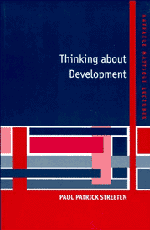Preface
Published online by Cambridge University Press: 05 February 2015
Summary
It is a great honour to have been asked to deliver this years's Raffaele Mattioli Lectures. I am deeply grateful to the Banca Commerciale Italiana and to Luigi Bocconi University for having invited me.
I have not had the good fortune to know Raffaele Mattioli personally, but I can claim to be only one handshake away from him, for I have shaken the hands of Piero Sraffa, Richard Kahn, Franco Modigliani and Charles Kindleberger, each of whom has shaken the hand of Dr Mattioli.
Keynes once said that he could hear more of what was going on from my tutor and friend, the late Thomas Balogh, in an hour or two, than he himself could pick up during several days in London. Similarly, Franco Modigliani learned more about the Italian banking system by talking to Mattioli than from all his reading.
As I learned from Innocenzo Gasparini, late Rettore of the Universita Luigi Bocconi, the complementary relationship between the history of economic thought - a subject sadly neglected at American universities today - and our present concerns, between pure historical research, economic theory and practical policy, between our culture, our ideas, our institutions and our behaviour, was at the heart of Raffaele Mattioli's personality. It produced the partnership between a prestigious bank, the Banca Commerciale Italiana, of which he was Manager and Chairman, and a distinguished university, Luigi Bocconi University.
He contributed to the legislation that divided investment from deposit banking, helped to finance the great Italian public enterprises, and saved the prison manuscripts by Gramsci, handed to him by Piero Sraffa, by putting them into the bank's vault.
- Type
- Chapter
- Information
- Thinking about Development , pp. xiii - xivPublisher: Cambridge University PressPrint publication year: 1995

